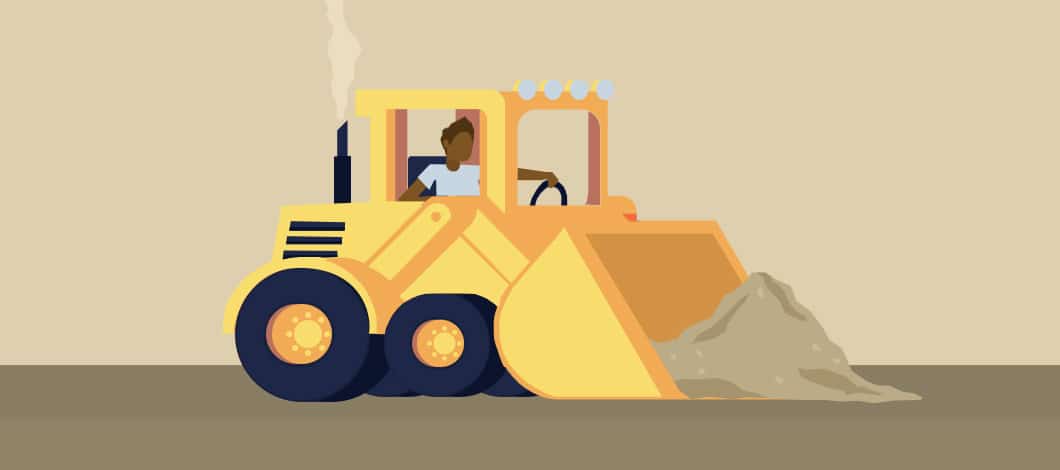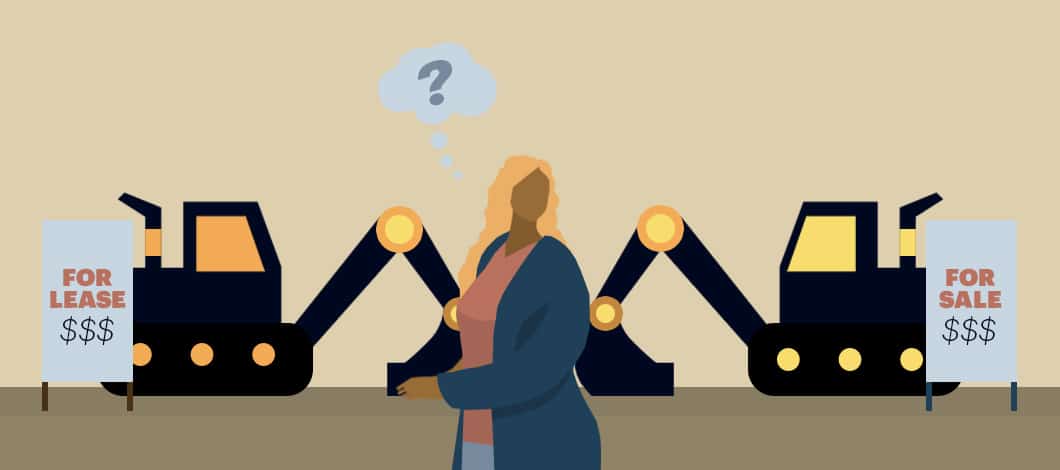Do leasing benefits for business owners outweigh the advantages of buying?
Let’s look at the buying and leasing benefits for business. We’ll consider the advantages and disadvantages of each method before suggesting some general guidelines on how to decide which option is best for your business.
Business Equipment Leasing: Pros and Cons
With equipment lease financing, your lender owns your equipment and rents it to you for a monthly fee. Most equipment leasing programs require payments for a fixed term which may last several years or more, along with interest rate fees. This approach has a number of advantages and disadvantages.
Equipment Leasing Pros
Pros of equipment leasing include:
- No or low down payments
- Flexible financing terms
- Easier equipment upgrades
The biggest leasing benefits for business regarding equipment? You don’t have to make a large down payment the way you would if you were purchasing equipment. Typically there are no down payments, or there can be a low down payment with some arrangements.
Mainly, you just have to pay your monthly rental fees. This minimizes disruption to your cash flow. It can make equipment affordable even to businesses with a tight cash flow or limited financing resources.
Because you aren’t buying your equipment, lease financing arrangements can be easier to qualify for than equipment loans. This can enable you to arrange more flexible terms than you could obtain with loans.
For example, even if you have a poor credit score, your lender may be willing to rent you equipment at a higher interest rate. With some leases, you may be able to arrange a rent-to-own equipment option.
A lease makes it easier for you to upgrade equipment. After your lease term expires, you can rent more current equipment. You aren’t locked into your equipment as you would be if you purchased it. You don’t run the risk of paying for equipment only to have it become obsolete.
Equipment Leasing Cons
Cons of equipment leasing include that you:
- Pay more over the long term
- Have to keep making payments for your entire term
- Don’t own the equipment you’re paying for
Because equipment lease rates include interest fees and may have other fees, you typically end up paying more overall for leasing equipment than you would for purchasing it. You save upfront, but you pay more down the road.
According to lessee advocate firm LPRS, how much you end up paying for leasing can depend heavily on your ability to assess and manage risk and negotiate favorable terms with your provider. A properly capped lease arrangement may cost you 90% of original equipment cost, but a poorly managed one could cost you twice the original cost, LPRS says.
With a lease, you’re obligated to keep making payments until your term expires. This can put you in a position of having to continue making payments even if your equipment becomes outdated or you no longer need it.
At the end of your lease, you don’t own your equipment. If you want to keep using it, you have to renew your lease.
Equipment Ownership: Pros and Cons
Equipment purchases typically are financed through equipment loans. These work similar to vehicle or mortgage loans in that you pay a down payment followed by monthly installments and interest fees. Your equipment usually serves as collateral for your loan and can be repossessed by your lender if you default on your payments.
This type of arrangement comes with its own pros and cons.
Equipment Ownership Pros
One advantage of purchasing equipment is that the amount you pay over time usually comes out to less than you would pay for leasing the same equipment. However, this isn’t automatically the case.
To make a fair price comparison, you need to consider not just your payments, but what tax deductions you can claim if you buy compared with what you can claim if you lease, as well as what you could recover from reselling the equipment if you buy it. Your tax adviser can help you navigate the accounting rules applicable to equipment lease and loan costs, which are somewhat complex (as AccountingTools notes).
The other major advantage of purchasing equipment is that you own it. This allows you to continue using it as long as you want rather than requiring you to renew a lease. You also have the option of reselling it.
Equipment Ownership Cons
A disadvantage of buying equipment is that loan arrangements typically require you to make a substantial down payment. If you’re tight on cash, this can be a barrier. For some businesses, this may make equipment unaffordable.
Another potential downside to buying equipment is that your purchase may become obsolete or depreciated. For example, high-tech equipment such as computers may quickly become outdated, making it less useful to you and lowering its resale value.

How Do You Decide Whether to Lease or Buy?
The biggest consideration when deciding whether to lease or buy is cost. To make an accurate cost comparison, you need to consider several factors:
- The total cost of lease payments, including interest, compared to the total cost of purchasing, including down payments and interest
- Tax deductions you could claim from leasing compared to tax deductions you could claim if you owned the equipment, including depreciation deductions
- The amount you could recover from reselling the equipment
Apart from raw cost comparisons, consider how long you’ll be able to continue using the equipment you lease or purchase. For example, how long is your lease term compared to the amount of time you’ll need to use the equipment under consideration? If you’re buying the equipment, what is its estimated life span and how long will it be useful before it becomes superseded by technology advances?
These considerations can be complex and require some expertise. For best results, talk to an accountant or attorney experienced with equipment financing arrangements.
Choose the Right Equipment Financing Method for Your Business
Leasing and buying each have their own pros and cons. The biggest leasing benefit for business is that you pay less upfront. In addition, you can obtain more flexible financing terms and it’s easier to upgrade. On the other hand, your overall costs are higher, you have to pay for the entire term of your lease even if you stop using your equipment and you don’t own the equipment you’re paying for.
In comparison, buying equipment costs less in the long term and you own your equipment. However, you have to pay more upfront and the equipment you own may become obsolete.
Deciding between leasing and buying primarily boils down to which option is more cost-efficient after factoring in variables such as tax deductions and equipment resale value. You also will want to consider whether you face a risk of your equipment outliving its usefulness or becoming outdated.
If you’re considering options for paying for your equipment, Fast Capital 360 can help you find equipment financing and other business financing resources. Use our free online prequalifying application to find competitive equipment financing rates and options.











